5 Destructive Attitudes That Will Hold You Back In Jiu-Jitsu
ATTITUDE IS IMPORTANT
Attitude is important. It informs our mentality and our thoughts. Our mentality and our thoughts shape and direct our actions. Our actions produce positive or negative results in the physical world. Generally speaking, you cannot produce positive results with negative thoughts. This is by no means a comprehensive list of all the negative and destructive attitudes in Jiu-Jitsu. It is merely the ones I have encountered the most in my 20 years on the mats as a student, instructor, and now as an academy owner.
1. I’m too out of shape / small / weak / inflexible to start or be good at Jiu-Jitsu.
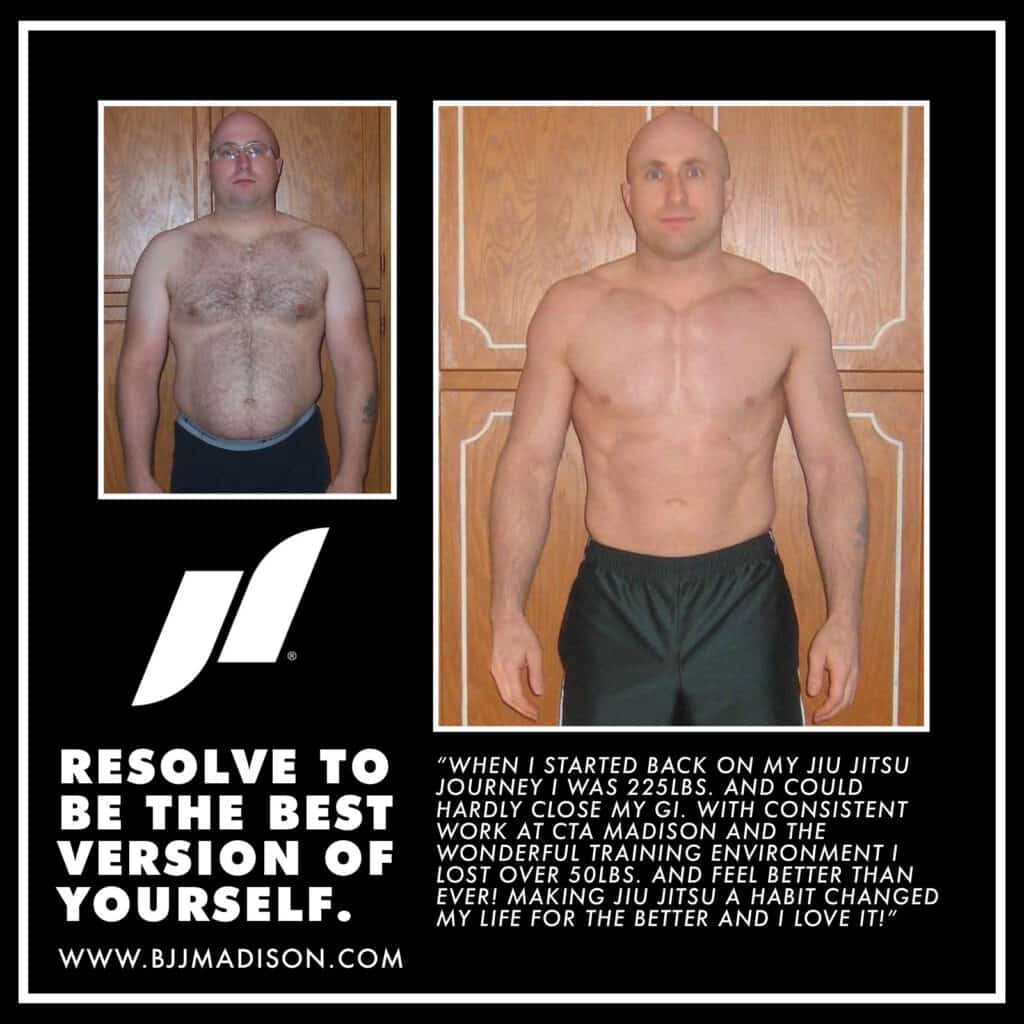
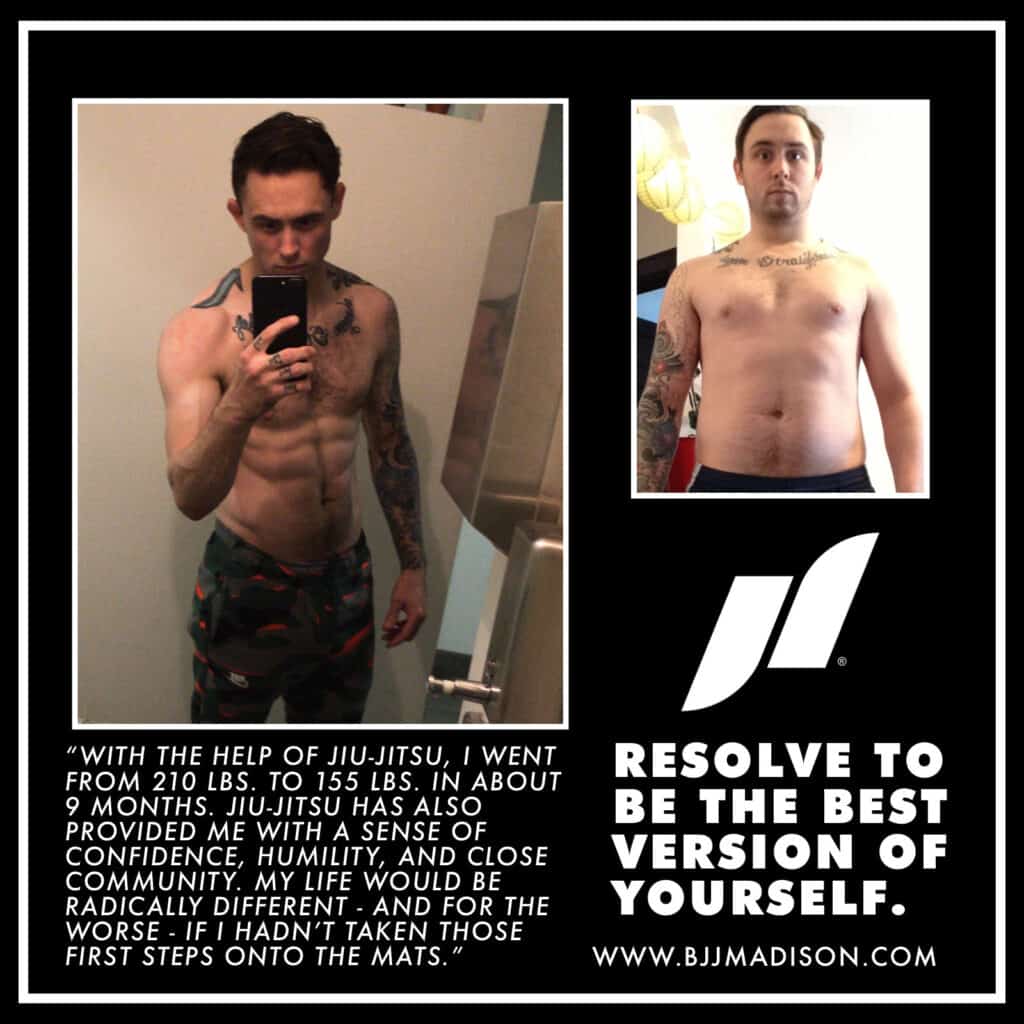
Every Jiu-Jitsu instructor hears some variation of this on a weekly basis. Usually in the form of prospective students saying “I want to get into shape before I start training Jiu-Jitsu.” The truth is, you will get into shape by doing Jiu-Jitsu. I have had multiple students drop 30+ lbs. just by training 3 hrs. a week consistently, without particular intensity. Jiu-Jitsu is a very physical martial art. Every Fundamentals class at Sanctuary Jiu-Jitsu includes a warm-up, technique instruction & drilling, and positional sparring (rolling). That’s 60+ minutes of constant movement. You move a lot, you bend a lot, you push & pull a lot, you sweat a lot! Just by showing up to class you will become more fit.
To address the other perceived limitations: it is true that being stronger, more flexible, bigger, and more athletic is a positive asset that will make Jiu-Jitsu easier to learn and perform. If you lack any of these physical assets, it’s not a bad goal to work towards getting stronger, more mobile, etc. But physical assets are useless without technique, i.e. understanding Jiu-Jitsu. There area also some things that you simply cannot change, such as height, arm/leg length, tibia to femur ratio, etc. Furthermore, Jiu-Jitsu is so complex that you can build a game and style that works around any limitations that you may have – inflexibility, for example. Very few people possess all of the attributes that would make an ideal Jiu-Jitsu athlete: strong, flexible, fast, agile, high endurance capacity, and above-average intelligence. All of us have deficits in many or most of these areas, but we likely excel in one or another. The key is to find the techniques that compliment our strengths and work towards a mediocre but sufficient understanding of the techniques that highlight our weaknesses.
To give up on a technique – or the entirety of Jiu-Jitsu! – before you have really applied yourself to see how Jiu-Jitsu can work for you, is to sell yourself short before you have ever really started.
2. I must win all the time.
This applies to both the training room and competition. Failure is a condition for success. Especially in a martial art as difficult and complex as Jiu-Jitsu. Within Jiu-Jitsu there are too many techniques, positions, and variables within each to be successful at all of them all the time. On top of that, finding the techniques that work well for you takes a lot of time, application, and trial-and-error. When you’re learning a new technique it will be unfamiliar to you. In order for you to actually learn it and incorporate it, you will have to attempt to apply it on a resisting partner that may or may not be more skilled, heavier, more athletic, or stronger than you. This will result in failure. It is rare for the average student to learn a technique and be able to apply it immediately. It does happen, to be sure, but it is the exception rather than the rule. Most of us have to work very hard to learn a technique and that results in a lot of attempts that result in both success and failure. If you give up because you fail from time-to-time, you will never learn anything new and you will begin to stagnate. Instead, accept that “losing” in the training room is a sign that you are trying something new, applying it, and coming up short for one reason or another. Instead of giving up or making general judgements about your Jiu-Jitsu, reflect on why it is not working for you and try to problem-solve and come up with solutions. Keep trying, applying, and reflecting and eventually you will either succeed or determine that the technique in question just isn’t something you are willing to do the work to incorporate into your game and move on to a different pathway. Rinse and repeat.
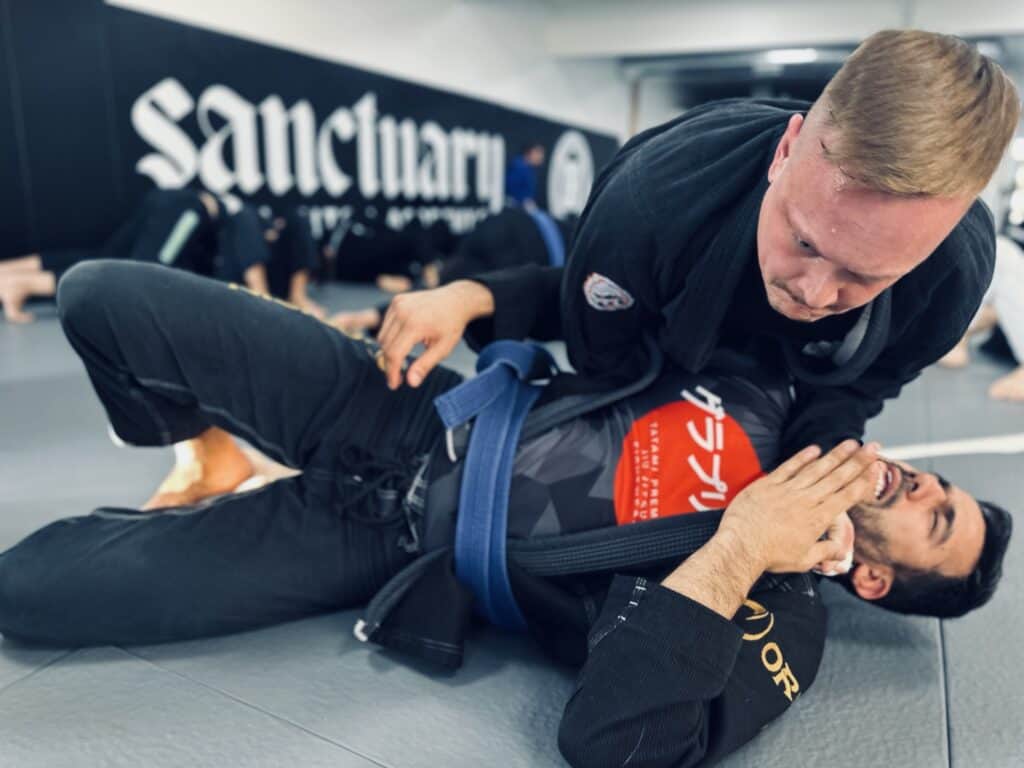
Having the attitude of “I must win all the time” or “I must never lose” will also lead to demoralization and a more stressful experience in the training room. Failure in one form or another is inevitable, so if you constantly feel the need to prove yourself, you will be placing upon yourself standards that are very hard to meet and usually don’t result in an enjoyable experience. Try and enjoy every facet of your experience in Jiu-Jitsu. Successes, plateaus, and failures are all a part of the game. Embrace it all with an open mind and you will be a lot better for it in the long run, and have a lot more fun doing it!
3. I must be right all the time.
This mostly applies to upper belts and/or instructors. It is impossible to know everything. Jiu-Jitsu is way too expansive, and continually evolving. Furthermore, what is “wrong” for you might be “right” for someone else. There are thousands of techniques in Jiu-Jitsu, and hundreds of different ways to do each of those techniques, down to the tiniest detail. A lot of this is preference born of the aforementioned trial-and-error training. Just because someone does something different doesn’t mean they are wrong. If it works: it’s right. Learn to accept that not everyone has the same game as you. Learn to also accept that there are reasons people train Jiu-Jitsu other than just being effective. Maybe I like doing low-percentage techniques because they’re fun and they bring me joy in their movement or in the rare chance that they succeed. What’s the harm in that? Learn to let go, let people develop their own games, and you will be much happier than trying to stubbornly force your own understanding on others.
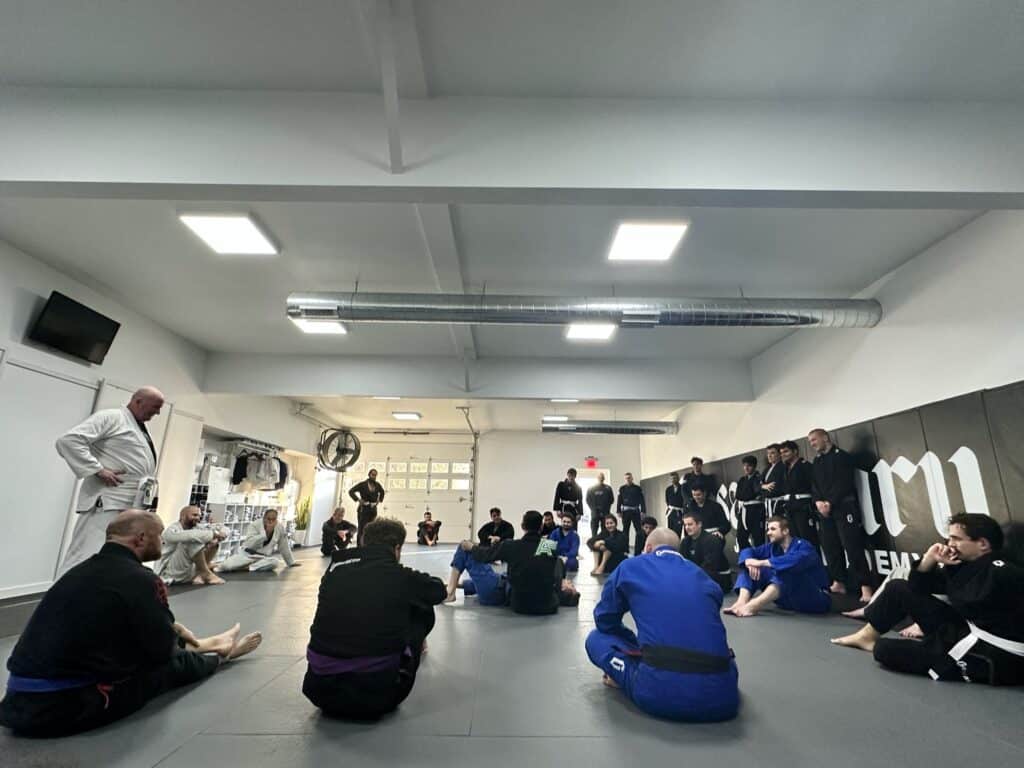
On top of that, if you have the attitude that you must be right all of the time, you are implying that you have what approaches complete knowledge and have nothing to learn. The truth is, you can learn something from everyone regardless of your rank/experience and theirs. Having a “beginners mind” will ensure that you are constantly looking at things with an open, fresh, and curious mind. This will make training and learning much more enjoyable, less stressful and rigid, and will result in more success on the mats. There is nothing more stressful than feeling the constant need and pressure to “prove” yourself. I promise that if you relinquish the attitude of always needing to be right, you will find your training so much more enjoyable, and you will get better as a result!
4. I am the most important person in the room.
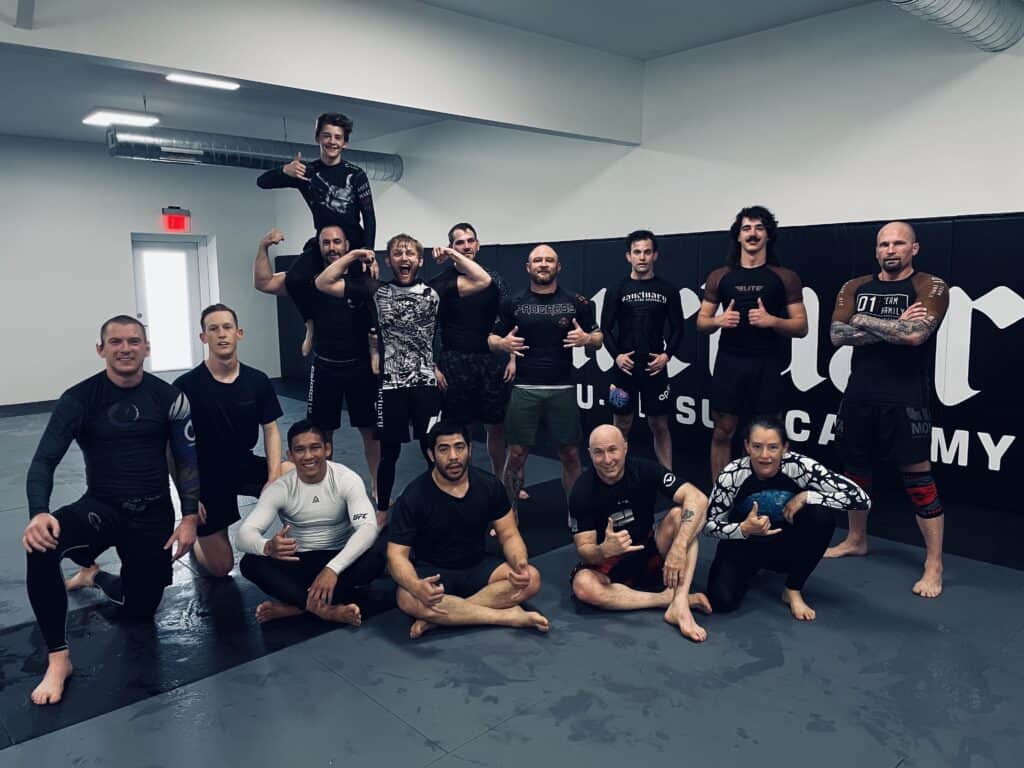
This is rarely true regardless of who you are, what you have achieved, or your rank. Even if it is true, you shouldn’t act as such. No one wants to be around an arrogant and entitled person. You cannot train Jiu-Jitsu in isolation. If you are a student, you need training partners. If you are an instructor, you need students. We are all equally important. What makes this a bit tricky is that there is a hierarchy in Jiu-Jitsu. Upper belts have more experience navigating and overcoming the various obstacles that Jiu-Jitsu presents. We should respect the time, effort, and sacrifices they have made to achieve their rank. However, one of the reasons they are upper belts is so that they can encourage, inspire, and guide lower belts. Giving back is a key prerequisite to promotion and/or any leadership position on or off the mats. By lifting up your training partners/students you lift yourself up. A rising tide lifts all boats, so you should always treat your training partners/students as if they are as important or more important than you. This will ensure that you have more training partners and of a higher quality, which will make you better (and happier!) in the long run.
5. I am better than this higher belt, so I deserve to be promoted.
Plain and simple: that’s not up to you to decide. That is the decision of your instructor. You do not have complete information. You have no idea where this person started, how far they have come from their starting point, what their goals are, the reasons they train Jiu-Jitsu, what obstacles they have had to overcome, and what their potential is. It takes someone with a lot of experience, knowledge, and a specific relationship with each student to determine these things, and even then instructors don’t get it right all of the time. Jiu-Jitsu instructors are human beings with fallible memory and judgement. But a good instructor does put a lot of thought and consideration into each promotion.
The 20-year old competitive Blue Belt who has 12 years of wrestling experience and is planning on competing at Pans is from time-to-time going to get the best of that 42 year old Brown Belt who started Jiu-Jitsu when they were 41 and has a decade of injuries under their belt and who is training Jiu-Jitsu to have fun, stay in shape, and be a part of a community of like-minded people.
We all start from different places and have different goals. Our instructors know this, and they can gauge our potential because of the experience they have. All of this doesn’t mean, of course, that you shouldn’t be able to approach your instructor and have a frank conversation with them as to why you aren’t being promoted and what you need to do to achieve that promotion. A good instructor puts a lot of thought into promotion. We take it very seriously. We don’t want our Jiu-Jitsu to be misrepresented, and we don’t want to lie to our students and cheat them out of feeling like they have truly earned something. A good instructor will be able to have a conversation with you and clearly explain to you why you are not ready for promotion and/or what you need to do to achieve a promotion. At the very least they should provide you with a general idea of what they are looking for and the steps you can take to get there. However, at the end of the day you need to have a certain amount of trust that your instructor knows better than you, has more complete knowledge, and can more accurately assess everyones individual rank in Jiu-Jitsu. If you completely lack that trust, you might want to seek out a different instructor that is more amenable to your needs and expectations.
All of that being said, this is a general about the fact that Jiu-Jitsu should never be about acquiring belts, it should be about acquiring skills and improving our health, relationships, and lives through the discipline and practice of the art. In addition to that, you shouldn’t be comparing yourself to others. You should only be focusing on being consistent, learning, and achieving your own goals. If you stay consistent and keep applying yourself, the appropriate belt ranks will follow. Focus on your individual path, don’t worry about others, and talk to your instructor if you have any questions or concerns.
POSITIVE ATTITUDES
All of this can be summed up by saying that a positive attitude is always better to have than a negative attitude. Every one of these points that should be avoided, can be inverted to a positive statement that should be sought after.
Don’t sell yourself short and make excuses for yourself, be humble, be open to experience and learning, lift up those around you, stay consistent and engaged with your training, chase skills not belts, have conversations with your coach, and stay positive! See you on the mats!